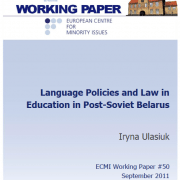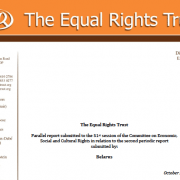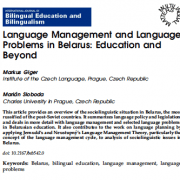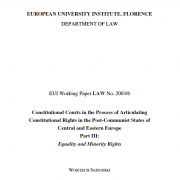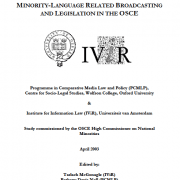The dissolution of the Soviet Union brought to the fore claims of linguistic minorities which had been ignored far too long. In almost all of the former Soviet republics language became an impetus to national revival and an important instrument in consolidating the newly independent states. At times excessively accentuated and overly politicized, the language […]
Read more
This parallel report focuses on the extent to which Belarus has met its obligations to respect, protect and fulfil the rights to equality and non-discrimination. The submission is concerned with Belarus’s performance under Article 2(2) of the International Covenant on Economic, Social and Cultural Rights, and with the impact which discrimination has on the enjoyment […]
Read more
This article provides an overview of the sociolinguistic situation in Belarus. It summarizes language policy and legislation, and deals in more detail with language management and selected language problems in Belarusian education. It also contributes to the work on language planning by applying Jernudd’s and Neustupny’s Language Management Theory, particularly theconcept of the language management […]
Read more
This paper analyses the constitutional rights by the constitutional courts of Central and Eastern Europe (CEE), in particular, the equality and anti-discrimination clauses. The CEE is a wide and untidy mosaic of ethnic, national and religious minorities, and communism often tried to stop any open expression under the official national unity. After the fall of communism, nationalistic […]
Read more
This study reports on the basic regulations of minority-language related broadcasting of the 55 participating States of the OSCE. Specifically, the study surveys State practice with regard to: (1) whether there are any stipulated quotas on the use of language as a vehicle of broadcasting (both for publicly- and privately-owned and run broadcasters); and (2) […]
Read more

